AGLP NEWS
AGLP press release for U.S. Supreme Court’s ruling in Students for Fair Admissions v. President and Fellows of Harvard College and Students for Fair Admissions v. University of North Carolina.
A diverse and representative student body propels educational and professional growth, and enhances problem-solving skills, innovation, and cultural competence. Diversity in college campuses is necessary for diversity in medical schools, which evidence demonstrates leads to better doctors and better health outcomes for patients. That is why AGLP: The Association of LGBTQ+ Psychiatrists supports efforts to enhance and strengthen our physician workforce, including dedicated efforts to improve diversity and representation throughout college, medical school, residency, fellowship programs, and beyond.
AGLP 2023 Awards
The Distinguished Service Award, AGLP’s first designated award, is given to an individual for outstanding contributions to the LGBTQ community. Over the years it has been awarded to AGLP members whose work extends past the reach of the organization, to supportive APA officials, and to public figures. The 2023 Distinguished Service Award is being presented to Jeffrey Akman, M.D.
Jeffrey S. Akman, MD joined AGLP in 1986 and has had a forty-year career in academic medicine and psychiatry as an out LGBTQ psychiatrist. A professor of psychiatry and behavioral sciences at the George Washington University, he currently serves as the Interim Chair of the GW Department of Psychiatry and Behavioral Sciences and the Chief of the Psychiatry Service in the GWU Hospital.
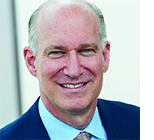 Dr. Akman previously served as the GW Vice President for Health Affairs and Dean of the School of Medicine and Health Sciences. During his tenure as the first out LGBTQ vice president and dean in the 200 year history of the George Washington University and the first (or one of the first) out LGBTQ deans of a U.S. medical school, he led the expansion of efforts in diversity, equity and inclusion, the transformation of the MD and health sciences curricula, an expansion of research and research facilities, the recruitment of nationally recognized faculty and a significant increase in philanthropy and student scholarship funding. With his colleagues in the GW medical enterprise, he led the creation of the GW Cancer Center, the GW Transplant Institute, the Level 1 Trauma Center and oversaw the expansion of the clinical enterprise.
Dr. Akman previously served as the GW Vice President for Health Affairs and Dean of the School of Medicine and Health Sciences. During his tenure as the first out LGBTQ vice president and dean in the 200 year history of the George Washington University and the first (or one of the first) out LGBTQ deans of a U.S. medical school, he led the expansion of efforts in diversity, equity and inclusion, the transformation of the MD and health sciences curricula, an expansion of research and research facilities, the recruitment of nationally recognized faculty and a significant increase in philanthropy and student scholarship funding. With his colleagues in the GW medical enterprise, he led the creation of the GW Cancer Center, the GW Transplant Institute, the Level 1 Trauma Center and oversaw the expansion of the clinical enterprise.
Prior to serving in that capacity, Dr. Akman served for ten years as the Leon M. Yochelson Professor and Chair of the Department of Psychiatry and Behavioral Sciences at GW and was recognized as the first (or one of the first) out LGBTQ chairs of a U.S. academic psychiatry department. An alumnus of Duke University and the GW MD and psychiatry residency programs, Akman served on the first APA Commission on HIV/AIDS and co-led the APA’s AIDS Education Project Steering Committee where, along with other members of AGLP, helped create the field of HIV psychiatry in the 1980s.
An APA Distinguished Life Fellow, Dr. Akman has been recognized for his efforts in medical education, HIV psychiatry, LGBTQ health, community service and for his contributions to George Washington University. He currently serves on the American Medical Association Foundation’s Commission on LGBTQIA+ Fellowships and the Department of Veterans Affairs Special Medical Advisory Group. He has served on President Barak Obama’s Presidential Advisory Council on HIV/AIDS, on the Association of American Medical Colleges Council of Deans, as President of the National Lesbian and Gay Health Association, President of the Washington Psychiatric Society and Chairman of the Whitman Walker Health Board of Directors.
Dr. Akman lives with his husband, Steven Mazzola, in Washington, DC.
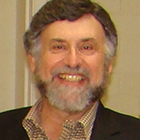 The AGLP James Paulsen Award, created in 1986 and presented to an AGLP member who has made significant contributions to the ongoing life of the organization, is conferred this year on Stuart Sotsky, M.D., a long-standing member of AGLP. Dr. Sotsky’s award will be presented in the Fall of 2023 when AGLP meets in his home town of Washington, DC.
The AGLP James Paulsen Award, created in 1986 and presented to an AGLP member who has made significant contributions to the ongoing life of the organization, is conferred this year on Stuart Sotsky, M.D., a long-standing member of AGLP. Dr. Sotsky’s award will be presented in the Fall of 2023 when AGLP meets in his home town of Washington, DC.
Stuart M. Sotsky, MD, MPH, Clinical Professor Emeritus of Psychiatry and Behavioral Sciences, received his BA with honors in 1968 and his MD and MPH in 1971 from The Johns Hopkins University. While there he was mentored by Dr. Jerome Frank, one of the leading comparative psychotherapy research psychiatrists of the time, who had served on the earlier NIMH Hooker Commission, that found no differences in personality function between homosexual and heterosexual men. He was also influenced by Dr. John Money, the psychologist on the earliest “sexual reassignment” surgery team, who taught Human Sexuality for the medical school, including gay, lesbian, bisexual and transsexual development and behavior. After graduation he began his internship at the University of Wisconsin, Madison, where he joined the Gay Liberation Front. He completed his psychiatry residency at Yale University School of Medicine in 1975, where he served as Chief Resident at Yale-New Haven Hospital. At Yale he served as the group facilitator for the first Conference on Homosexuality and the Clergy, organized by his boyfriend, who was a graduate student in the Divinity School. Several of the closeted women participants were later among the first ordained Episcopal female priests. In 1975 as Chief Resident at Yale-New Haven Hospital he was responsible for Psychiatry Grand Rounds and organized the first conference on Transsexualism, including presentations by both male and female transgender persons on their medical and psychiatric experiences. This was at a time when teaching on sexuality in the residency was limited to traditional psychoanalytic theory.
In 1976 he attended the APA Annual Meeting in Miami and the first meeting of what later became the Association of Gay and Lesbian Psychiatrists. The latter took place in a remote room in the convention center, with people milling about outside the room hesitant to enter, fearfully removing their badges and using only first names. He joined and has remained active in AGLP since. He met Dr. Connie Kyropoulos of Washington and Dr. Doug Woodruff of Baltimore at that meeting, and together they organized the Washington-Baltimore Gay and Lesbian Psychiatrists Group, the regional affiliate. We met monthly for eleven years in peer supervision to teach ourselves openly as gay and lesbian therapists about homosexual development, behavior and practices, transference, and ethics, which none of us had been taught while closeted during residency. Several members of the Group became active in AGLP including Drs. Jeff Akman, Dan Hicks, and Leslie Goransson.
After residency he completed a research fellowship at the National Institute of Mental Health where he served as Clinical Associate in the Laboratory of Clinical Psychobiology with Dr. Fred Goodwin. He joined the full-time faculty of the Department of Psychiatry and Behavioral Sciences at The George Washington University School of Medicine in 1977 and rose to become Professor and Director of the Division of Ambulatory Care, which included physician managed mental health services and capitated population-based health services. As Division Director he was recruited and appoined a diverse academic clinical team, including two women assistant directors, one of whom was lesbian, the first Asian and Latino faculty psychiatrists, and the first African-American chief resident, enhancing representation and the capacity to teach and provide culturally competent care to all. He was devoted to the training and supervision of several generations of psychiatry residents, psychology and social work interns, and medical students, and initiated and coordinated the Clinical Psychopharmacology, Diagnostic Assessment, and Brief Psychotherapy training programs in the Department. In the early years of the AIDS epidemic after the deaths of friends and colleagues, he came out professionally in order to be a role model and teach rationally about work with gay patients and psychiatric aspects of AIDS. The Psychiatry Department chair, Dr. Jerry Wiener, asked him to treat the first psychiatric inpatient with AIDS at our hospital, a young graduate of our residency with an organic mania. As a consequence, he worked with Dr. Winfield Scott, the Dean of Students, through the Mayor’s office, to overcome the boycott of AIDS patients by the ambulance companies who had refused to transport them until then. Together with the Chair and Residency Director, he sought to negotiate the merger of the Psychoanalytic Institute and the Department, which would have provided an accelerated path for residents to enter analytic training in their PGY IV year. When it became clear that the Institute still would not accept gay or lesbian residents, I objected to the merger as discriminatory and the Department withdrew its proposal. Fortunately, the Institute later changed its policy and Dr. Jeff Akman, the subsequent openly gay Chair and later Dean of the School of Medicine and Health Sciences, was then able to achieve the merger.
Beginning in 1980 Dr. Sotsky established the Depression Treatment Research Program in the Division of Research as Principal Investigator in the landmark NIMH Treatment of Depression Collaborative Research Program. This was the first national multicenter study of the efficacy of psychotherapies, Interpersonal Psychotherapy and Cognitive Behavior Therapy, and pioneered a model for randomized, controlled, blinded research design for the efficacy of psychosocial treatments. There he conducted the largest empirical study of the therapeutic alliance and its effect on response to both psychotherapies and pharmacotherapy. From his research experience and background in public health issues, Dr. Sotsky became concerned about the quality of care for depressive illnesses and the organization and financing of mental health services. He served on the American Psychiatry Association Committee on Managed Care, Council on Quality of Care and Committee on Gay, Lesbian and Bisexual Issues. From 1997-1999 he was Senior Science Advisor on the National Advisory Mental Health Council Parity and Managed Care Task Force of the NIMH, whose reports to Congress served as the scientific basis for the eventual enactment of national parity legislation. He retired from the full-time faculty and was appointed Clinical Professor in 2002, continuing to supervise residents and lead psychiatry seminars on a voluntary basis while conducting an active private clinical practice in Washington until full retirement in 2017. Dr. Sotsky is a Distinguished Life Fellow of the American Psychiatric Association, has served on the Board of the Washington Psychiatric Society, and was elected a member of the American College of Psychiatrists.
The Barbara Gittings Award for 2023 is being presented to Margie Sved, M.D. The AGLP Barbara Gittings Award is presented to a woman who demonstrates exceptional leadership and advocacy for lesbian Issues. It was named after one of the founders of the gay rights movement and one of the activists instrumental in moving APA to consider depathologizing homosexuality.
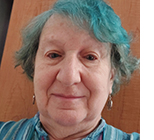 Margie writes: “I grew up in New Jersey, then went south for college at Duke, then medical schoolat UNC, psychiatry residency at MUSC, (Charleston SC), followed by Consult-Liaison Fellowship at Tufts-New England Medical Center. Quickly back south, to faculty job at what was then Medical College of Georgia (Augusta,GA). But since I met Dyke Doctors during my year in Boston, was informed about and attended the Inaugural Women in Medicine (Lesbian Physicians) Conference in 1984. I (foolishly?) volunteered for the AAPHR (now GLMA) Board as Women's Issues Chair, and began my many years of advocacy as a lesbian psychiatrist.
Margie writes: “I grew up in New Jersey, then went south for college at Duke, then medical schoolat UNC, psychiatry residency at MUSC, (Charleston SC), followed by Consult-Liaison Fellowship at Tufts-New England Medical Center. Quickly back south, to faculty job at what was then Medical College of Georgia (Augusta,GA). But since I met Dyke Doctors during my year in Boston, was informed about and attended the Inaugural Women in Medicine (Lesbian Physicians) Conference in 1984. I (foolishly?) volunteered for the AAPHR (now GLMA) Board as Women's Issues Chair, and began my many years of advocacy as a lesbian psychiatrist.
Meanwhile, moved back to the Triangle Area of NC (Raleigh, Durham, Chapel Hill) in 1985, where I have stayed since. My psychiatric career was primarily in Public Sector psychiatry (State Hospital, CMHC), with a variety of other part-time jobs, until I was laid off when the County MHC closed in 2013. I was luckily (and serendipitously) able to retire for the first time with a NC State pension and benefits. The past 10 years have continued with various part-time jobs, and I'm now down to working just one day a week. But, one of the circles of my life is going from seeing my first GRID patient in Boston in 1983 during my consult fellowship, to ending my employed career with my one day a week current job as the psychiatrist for our county HIV clinic.
Advocacy: After several years on the AAPHR Board, I jumped from being treasurer of AAPHR to treasurer of AGLP in 1998, and also became active in APA and my local District Branch in North Carolina. I've been President of AGLP and NCPA, as well as multiple other elected positions with both. Became active in the APA Assembly starting in 1995, as Deputy Representative and then Rep for the Caucus of Gay, Lesbian, and Bisexual Psychiatrists, and was awarded the Ron Shellow Assembly Award for service in the Assembly in 2009. But, I didn't end up leaving the Assembly, served a representative for my district branch, and then since 2016 as the Representative for AGLP. Innumerable other committees at APA, NCPA, as well as in my places of employment and the North Carolina state government, mostly focused on advocacy related to LGBT issues and HIV disease.
Personal: I met Grace in 1990, and we've had several marriages along the way. We adopted Eliana as an infant in 1993, and Sara as a 9 year old in 1995 (and sued each other for co-guardianship of our daughters while second parent adoptions were beginning in the more progressive states). Each of them had various mental health and physical challenges, and are now successful, independent, young adults. We also served as foster parents and respite providers for several years with the Wake County Department of Social Services, including being the first same sex couple licensed as a couple for foster care, which led to the policy change to allow same sex couple to foster parent. We've also adopted various animals along the way, most recently a 9 year old pit bull from our local county animal shelter.”
The 2023 Stuart Nichols Award is being conferred on two organizations and their associated leaders.
A. Ning Zhou, M.D., and the UCSF Psychiatry Department's Area of Distinction in LGBTQ+ Mental Health
The UCSF Adult Psychiatry Residency Training Program LGBTQ+ Mental Health Area of Distinction (AoD) offers a specialized training experience to prepare interested psychiatry residents for careers as leaders in LGBTQ+ mental health. The AoD was first developed in the 2012-13 academic year and initiated during the 2013-14 academic year. Residents who graduate with the AoD meet specific requirements which include demonstrating a knowledge base in LGBTQ+ mental health, participating in at least one LGBTQ+ clinical experience, educating resident peers or medical students, and conducting a scholarly project. AoD residents also meet quarterly with a mentor who specializes in LGBTQ+ mental health. In addition to providing a robust clinical and educational experience, the AoD seeks to foster a sense of community among trainees and faculty through quarterly educational and/or social events.
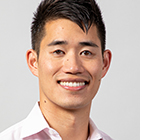 A. Ning Zhou, MD (he/him/他) is a child, adolescent, and adult psychiatrist at the San Francisco Department of Public Health (SFDPH). He completed medical school at the University of Chicago Pritzker School of Medicine, psychiatry residency at the University of California, San Francisco (UCSF), and child & adolescent psychiatry fellowship at New York-Presbyterian/Columbia and Cornell Universities. At UCSF, he served as Chief Resident for Education, completed the Health Professions Education Pathway, received the Department of Psychiatry's Outstanding Teacher Award, and graduated with Areas of Distinction in LGBTQ+ Mental Health and Cultural Psychiatry. He was a previous American Psychiatric Association/Substance Abuse and Mental Health Services Administration Minority Fellow where he received funding to promote minority mental health and study sexual orientation disclosure and intersectionality of gay Chinese/Chinese-American male emerging adults. He currently works at Dimensions Clinic for Queer and Trans Youth, Castro-Mission Health Center, Chinatown Child Development Center, and Chinatown/North Beach Mental Health Services. He co-facilitates a monthly gender consultation group aimed at increasing SFDPH's capacity to serve transgender and nonbinary youth and their families. He is on voluntary faculty at UCSF where he supervises trainees and directs the LGBTQ+ Mental Health Area of Distinction. He is a UCSF Public Psychiatry Administrative Fellow where he conducts research to understand sexual orientation & gender identity language and healthcare experiences among transgender and nonbinary Mandarin speakers. He serves as a committee member on the American Academy of Child & Adolescent Psychiatry Sexual Orientation & Gender Identity Committee. In addition, he has a small private practice that focuses on transgender and nonbinary youth.
A. Ning Zhou, MD (he/him/他) is a child, adolescent, and adult psychiatrist at the San Francisco Department of Public Health (SFDPH). He completed medical school at the University of Chicago Pritzker School of Medicine, psychiatry residency at the University of California, San Francisco (UCSF), and child & adolescent psychiatry fellowship at New York-Presbyterian/Columbia and Cornell Universities. At UCSF, he served as Chief Resident for Education, completed the Health Professions Education Pathway, received the Department of Psychiatry's Outstanding Teacher Award, and graduated with Areas of Distinction in LGBTQ+ Mental Health and Cultural Psychiatry. He was a previous American Psychiatric Association/Substance Abuse and Mental Health Services Administration Minority Fellow where he received funding to promote minority mental health and study sexual orientation disclosure and intersectionality of gay Chinese/Chinese-American male emerging adults. He currently works at Dimensions Clinic for Queer and Trans Youth, Castro-Mission Health Center, Chinatown Child Development Center, and Chinatown/North Beach Mental Health Services. He co-facilitates a monthly gender consultation group aimed at increasing SFDPH's capacity to serve transgender and nonbinary youth and their families. He is on voluntary faculty at UCSF where he supervises trainees and directs the LGBTQ+ Mental Health Area of Distinction. He is a UCSF Public Psychiatry Administrative Fellow where he conducts research to understand sexual orientation & gender identity language and healthcare experiences among transgender and nonbinary Mandarin speakers. He serves as a committee member on the American Academy of Child & Adolescent Psychiatry Sexual Orientation & Gender Identity Committee. In addition, he has a small private practice that focuses on transgender and nonbinary youth.
Erick Hung, M.D., and the UCSF LGBT Psychiatry Clinic
The LGBTQ Psychiatry Clinic is a specialty clinic at UCSF Health in the Department of Psychiatry and Behavioral Sciences Pritzker building. This clinic provides mental health services to individuals who identify as a sexual or gender minority. The population is varied demographically by age, socioeconomic status, relationship status, ethnicity and race, gender identity, sexual orientation, past psychiatric history, and diagnoses. Additionally, our staff address the mental health consequences related to minority stress, such as prejudice, stigma, rejection, internalized homophobia and transphobia, and structural oppression (e.g. lack of equal civil rights for sexual and gender minorities). Clinical services include comprehensive psychiatric evaluations, consultation, medication management, and psychotherapy. The clinic is a close partner with the UCSF Gender Affirming Health Program and meets monthly with primary care clinicians for collaborative care. The clinic also assists in providing a psychosocial assessment for individuals pursuing gender affirmation surgical procedures. Our staff are committed to promote health equity for all and to foster diversity, belonging, and anti-oppression in our health care system.
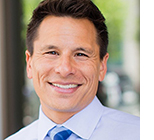 Dr. Erick Hung is a Professor of Clinical Psychiatry in the UCSF Department of Psychiatry and Behavioral Sciences and is a member of the UCSF Academy of Medical Educators. He is the Associate Dean for Students in the UCSF School of Medicine. Prior to joining the Dean's team, he served as the Program Director of the Adult Psychiatry Residency Training Program from 2012-2022 and the Director of Curricular Affairs for GME for the UCSF School of Medicine from 2015-2022. He completed his medical school, psychiatry residency, and forensic psychiatry fellowship training at the University of California, San Francisco and joined the faculty at UCSF in 2009. He actively teaches in the areas of risk assessment, medical education, forensic psychiatry, leadership, and ethics. His interests include primary care and mental health integration, the interface between mental health and the legal system, inter-professional collaboration and training, HIV psychiatry, LGBTQ mental health, and medical education. His educational scholarship interests include competency-based assessment, faculty development, and near-peer learning in the workplace setting.
Dr. Erick Hung is a Professor of Clinical Psychiatry in the UCSF Department of Psychiatry and Behavioral Sciences and is a member of the UCSF Academy of Medical Educators. He is the Associate Dean for Students in the UCSF School of Medicine. Prior to joining the Dean's team, he served as the Program Director of the Adult Psychiatry Residency Training Program from 2012-2022 and the Director of Curricular Affairs for GME for the UCSF School of Medicine from 2015-2022. He completed his medical school, psychiatry residency, and forensic psychiatry fellowship training at the University of California, San Francisco and joined the faculty at UCSF in 2009. He actively teaches in the areas of risk assessment, medical education, forensic psychiatry, leadership, and ethics. His interests include primary care and mental health integration, the interface between mental health and the legal system, inter-professional collaboration and training, HIV psychiatry, LGBTQ mental health, and medical education. His educational scholarship interests include competency-based assessment, faculty development, and near-peer learning in the workplace setting.
The Stuart Nichols Award is presented to a community service organization in the Annual Meeting city that supports LGBTQ Mental Health. It was named after Stuart Nichols, MD, a community psychiatrist who did addictions and HIV work and was a mentor to many AGLP members. The award includes a cash stipend.
This year, the 2023 AGLP Awards will be presented in a ceremony at OASIS San Francisco, 298 Eleventh St. San Francisco, CA 94103 • (415) 795-3180 • https://www.sfoasis.com, on Monday, May 22, 2023. The reception begins at 7:00pm with the Awards Ceremony following at 8:00pm.
AGLP Announces our New Slate of Officers for 2023-2024
The AGLP Nominating Committee has approved the following slate of officers for the 2023-2024 term and the slate was approved by Executive Committee of AGLP. Early voting is now available for those not able to attend the meeting.
CLICK HERE to cast your vote. Your username and password will be required to access the ballot – only AGLP members may vote in this election.
President-Elect: Pratik Bahekar, M.B.B.S.
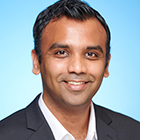 Dr. Pratik Bahekar is an assistant professor in psychiatry at Yale University and a diversity leadership fellow of the American Psychiatric Association. He was a delegate from the Medical Society of the State of New York to the American Medical Association -RFS Interim meeting. He was on various local and national committees working toward advancing LGBTQ+ mental health and participated in advocacy and policy development with the same goal. He serves as the vice president of the Association of LGBTQ+ Psychiatrists. Dr. Bahekar's research focuses on the legal aspects of LGBTQ+ mental health. He has produced scholarship works with his expertise in LGBTQ+ mental health and his vision to remove healthcare barriers for LGBTQ+ individuals. Dr. Bahekar completed the General Psychiatry Residency Training Program at SUNY Downstate Medical Center in Brooklyn, NY, and Yale University, and a forensic psychiatry fellowship at the University of Pennsylvania.
Dr. Pratik Bahekar is an assistant professor in psychiatry at Yale University and a diversity leadership fellow of the American Psychiatric Association. He was a delegate from the Medical Society of the State of New York to the American Medical Association -RFS Interim meeting. He was on various local and national committees working toward advancing LGBTQ+ mental health and participated in advocacy and policy development with the same goal. He serves as the vice president of the Association of LGBTQ+ Psychiatrists. Dr. Bahekar's research focuses on the legal aspects of LGBTQ+ mental health. He has produced scholarship works with his expertise in LGBTQ+ mental health and his vision to remove healthcare barriers for LGBTQ+ individuals. Dr. Bahekar completed the General Psychiatry Residency Training Program at SUNY Downstate Medical Center in Brooklyn, NY, and Yale University, and a forensic psychiatry fellowship at the University of Pennsylvania.
Vice-President: Eric Rafla-Yuan, M.D.
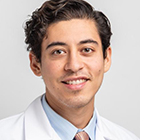 Eric Rafla-Yuan, M.D. is a San Diego psychiatrist and a voluntary assistant clinical professor at UC San Diego, where he founded and led the psychiatry residency diversity committee. He graduated medical school and completed additional training in bioethics at the Vanderbilt University School of Medicine, and completed residency training at the UC San Diego Community Psychiatry Program. He currently sits on the APA Council of Advocacy and Government Relations, and previously held leadership roles with the San Diego Psychiatric Society and California State Association of Psychiatrists. His research focuses on policy and structural drivers of health outcomes and his work on 988 and clinical crisis services has been published in popular media as well as the New England Journal of Medicine and Health Affairs. He is the chair of APA's Caucus on the Social Determinants of Health, a delegate in the American Medical Association's House of Delegates, and formerly served as Health Counsel in the United States House of Representatives during the 117th session of Congress.
Eric Rafla-Yuan, M.D. is a San Diego psychiatrist and a voluntary assistant clinical professor at UC San Diego, where he founded and led the psychiatry residency diversity committee. He graduated medical school and completed additional training in bioethics at the Vanderbilt University School of Medicine, and completed residency training at the UC San Diego Community Psychiatry Program. He currently sits on the APA Council of Advocacy and Government Relations, and previously held leadership roles with the San Diego Psychiatric Society and California State Association of Psychiatrists. His research focuses on policy and structural drivers of health outcomes and his work on 988 and clinical crisis services has been published in popular media as well as the New England Journal of Medicine and Health Affairs. He is the chair of APA's Caucus on the Social Determinants of Health, a delegate in the American Medical Association's House of Delegates, and formerly served as Health Counsel in the United States House of Representatives during the 117th session of Congress.
Secretary: Sarah Noble, D.O.
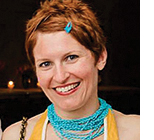 Sarah Noble received a Bachelor of Arts from Sarah Lawrence College and her Doctor of Osteopathy from the Philadelphia College of Osteopathic Medicine. She currently works at Albert Einstein Medical Center where she is the Medical Director of Outpatient Behavioral Health. Sarah is interested in women's mental health, particularly postpartum depression and depression during pregnancy.
Sarah Noble received a Bachelor of Arts from Sarah Lawrence College and her Doctor of Osteopathy from the Philadelphia College of Osteopathic Medicine. She currently works at Albert Einstein Medical Center where she is the Medical Director of Outpatient Behavioral Health. Sarah is interested in women's mental health, particularly postpartum depression and depression during pregnancy.
She also focuses on LGBTQ mental health care, and is the secretary for the AGLP, the national organization for LGBTQ psychiatrists. Sarah is part of the Pride Clinic at Einstein which specializes in LGBTQ competent care.
Sarah has also begun to focus on anti-racism work within the behavioral health department and the hospital. She teaches about the social determinants of health and the effects of implicit bias on patient care.
Treasurer: Chaden Noureddine, M.D.
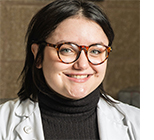 Chaden Noureddine (she/her/hers) is a psychiatry intern at Icahn School of Medicine at Mount Sinai, Beth Israel. She was the interim AGLP treasurer (22-23), and is the current Resident and Fellows Committee co-chair. She served as national PsychSIGN region 3 chair and wellness and burnout prevention chair during her medical school training. During that time, she also served as PsychSIGN Magazine chief editor and PsychSIGN Podcast host. She is passionate about digital psychiatry, LGBTQIA+ mental health, and queer representation in media, especially in video games. In her free time, she enjoys digital arts, brewing coffee, playing AAA and indie title video games, and exploring NYC eateries.
Chaden Noureddine (she/her/hers) is a psychiatry intern at Icahn School of Medicine at Mount Sinai, Beth Israel. She was the interim AGLP treasurer (22-23), and is the current Resident and Fellows Committee co-chair. She served as national PsychSIGN region 3 chair and wellness and burnout prevention chair during her medical school training. During that time, she also served as PsychSIGN Magazine chief editor and PsychSIGN Podcast host. She is passionate about digital psychiatry, LGBTQIA+ mental health, and queer representation in media, especially in video games. In her free time, she enjoys digital arts, brewing coffee, playing AAA and indie title video games, and exploring NYC eateries.
2023 John Fryer, M.D. Award Winner
AGLP is pleased to announce Nanette Gartrell, M.D., as the recipient of the American Psychiatric Association’s 2023 John Fryer Award. Nanette Gartrell, M.D., is known for her research on sexual abuse of patients by psychiatrists, done in the 1980s, research that was instrumental in changing ethics codes for medicine and psychiatry. Her National Longitudinal Lesbian Family Study has been proceeding since 1986, giving a rich window into the lives of a group of lesbian mothers and their children. She maintains a private practice in San Francisco, where she also writes and conducts her research.
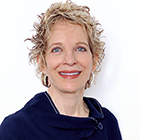 In the late 1970s and early 80s, Dr. Gartrell was one of the pioneering members of the Association of Gay and Lesbian Psychiatrists (AGLP). Along with Peggy Hanley-Hackenbruk, MD, and others, Dr. Gartrell paved the way for more women to be involved in AGLP. Dr. Gartrell was a member of the American Psychiatric Association (APA) Committee on Women for several years during the 1980s, and served as Committee chair from 1982-84. She has also had many years of involvement with the lesbian physician’s group, Women in Medicine. As mentor, advocate for women’s rights, through her oral presentations, research publications, and lifelong work in psychiatry, she has had a significant impact on the lives of LGBTQ+ people in the United States and throughout the world.
In the late 1970s and early 80s, Dr. Gartrell was one of the pioneering members of the Association of Gay and Lesbian Psychiatrists (AGLP). Along with Peggy Hanley-Hackenbruk, MD, and others, Dr. Gartrell paved the way for more women to be involved in AGLP. Dr. Gartrell was a member of the American Psychiatric Association (APA) Committee on Women for several years during the 1980s, and served as Committee chair from 1982-84. She has also had many years of involvement with the lesbian physician’s group, Women in Medicine. As mentor, advocate for women’s rights, through her oral presentations, research publications, and lifelong work in psychiatry, she has had a significant impact on the lives of LGBTQ+ people in the United States and throughout the world.
We believe that Dr. Gartrell embodies the ideal candidate for the Fryer Award. Through her sustained life-long work, she has brought world-wide attention to the issues that have directly and indirectly improved the lives and mental health of countless LGBTQ+ people.
The 2023 AGLP John Fryer Award and Lecture, "Out of the Frying Pan and to the Fryer: 54 YEars of LGBTQ+ Advocacy Within Psychiatry" will occur on Monday, May 22, 3:45 to 5:15pm, at the American Pscyhiatric Association Annual Meeting in San Fracisco.
The John E. Fryer, MD, Award honors an individual whose work has contributed to the mental health of sexual minorities. It was named for John Fryer, the psychiatrist who appeared as “Dr. H. Anonymous” at the 1972 APA meeting and helped move forward the process of removing the diagnosis of homosexuality from the DSM. The Award is funded by AGLP members, a matching grant from the Gill Foundation, and a bequest from AGLP founding member Frank Rundle, MD.
Contribute to the Fryer Award Legacy Fund
Ensuring the growth and future of the Fryer Award for generations to come
For more information about how you can get involved, please contact Roy Harker, Executive Director of AGLP at rharker@aglp.org. Tax-deductable contributions to AGLP for the Fryer Award can be made through this secure link.
Gay “Cures” Are Harmful And Don’t Work, Says World’s Largest Body Of Psychiatrists
Exclusive: The World Psychiatric Association has condemned so-called conversion therapy and called on governments around the world to decriminalise homosexuality.
The largest international organisation for psychiatrists is to publish a statement condemning conversion therapy as unscientific, unethical, ineffective, and harmful, BuzzFeed News can reveal.
In a wide-ranging call to reduce the stigmatisation, discrimination, and resulting worsened mental health of lesbian, gay, bisexual, and transgender people, the World Psychiatric Association (WPA) will formally announce on Tuesday its opposition to any attempts to turn LGBT people heterosexual – known as “conversion therapy” or “reparative therapy”.
“There is no sound scientific evidence that innate sexual orientation can be changed,” says the WPA’s position statement, which has been supplied to BuzzFeed News.
“Furthermore, so-called treatments of homosexuality can create a setting in which prejudice and discrimination flourish, and they can be potentially harmful. The provision of any intervention purporting to ‘treat’ something that is not a disorder is wholly unethical.”
Although many psychiatric organisations in Western countries, such as the UK and the US, already publicly oppose conversion therapy, the WPA represents over 200,000 psychiatrists in over 118 countries, many of which criminalise homosexuality and, in some cases, condone attempts to “cure” it.
The WPA’s statement, which will likely be seen as controversial by many of its members, says: “A same-sex sexual orientation per se does not imply objective psychological dysfunction or impairment in judgement, stability, or vocational capabilities.” It continues: “[The WPA] acknowledges the lack of scientific efficacy of treatments that attempt to change sexual orientation and highlights the harm and adverse effects of such ‘therapies’.
The WPA also calls on governments around the world to scrap laws against homosexuality:
“WPA supports the need to de-criminalise same-sex sexual orientation and behaviour and transgender gender identity, and to recognise LGBT rights to include human, civil, and political rights.”
But to reduce the suffering and mental ill-health experienced by a disproportionate number of LGBT people, governments and psychiatrists alike need to go much further than decriminalising homosexuality and banishing conversion therapy, the statement says:
“[The WPA also] supports anti-bullying legislation; anti-discrimination student, employment, and housing laws; immigration equality; equal age of consent laws; and hate crime laws providing enhanced criminal penalties for prejudice-motivated violence against LGBT people.”
It also cites research demonstrating that countries that liberalise laws around homosexuality – and provide equal legal treatment – see a resulting improvement in the mental health of their LGBT citizens.
Implementing Curricular and Institutional Climate Changes to Improve Health Care for Individuals Who Are LGBT, Gender Nonconforming, or Born with DSD
A first-of-its-kind document from the Association of American Medical Colleges lays out 30 core competencies that will be rolled into physician training. The goal: a culture change in how healthcare is provided to the LGBT community.
A landmark report from the Association of American Medical Colleges includes the first guidelines for training physicians to care for people who identify as lesbian, gay, bisexual, or transgender, who are gender nonconforming, or who are born with differences of sex development. The report, released this week, establishes 30 core competencies that AAMC says physicians should be required to master.
“This groundbreaking publication represents a major step forward in giving medical schools, teaching hospitals, and health systems a roadmap for improving the care of LGBT and other individuals with differences in gender identity, gender expression, and sex development,” AAMC President and CEO Darrell G. Kirch, M.D., said in a statement,
The guidelines will encourage family and healthcare professionals to move away from thinking of these patients differently from others, Kirch added.
“Physicians and medical school faculty members are committed to treating all patients equally, yet research shows that everyone has unconscious biases that can affect how we interact with people from different experiences and backgrounds,” he said. “This new resource will help train physicians to overcome these blind spots and deliver high-quality care to all patients.”
Discrimination in medical care remains a serious issue for the LGBT community. According to a 2010 Lambda Legal survey, 56 percent of lesbian, gay, or bisexual respondents and 70 percent of transgender and gender-nonconforming respondents experienced at least one or more forms of discrimination in healthcare, including being denied care they needed, healthcare professionals refusing to touch them or using excessive precautions prior to contact, and being blamed for their health status.
Altering the way healthcare practitioners are trained in these areas could ultimately result in a culture change within the profession, according to Alice Dreger, professor of medical humanities and bioethics at Northwestern University’s Feinberg School of Medicine, who contributed to the AAMC report.
“We believe that once doctors start to recognize that the spectrums we are talking about are all around them in their own institutions, a deeper respect for the concerns for these patients will emerge,” Dreger wrote ina recent Slate article. “Given how radically the culture around medicine is changing, with these educational reforms inside medical schools, perhaps as soon as 10 years from now we will see a new world.”
AAMC said the competency-based model will enable medical educators to work the guidelines into existing training materials seamlessly. The association is currently developing a workshop that will focus on integrating the material into current curricula. That program will be piloted at the University of Louisville School of Medicine next year.
Get the report...>

